As I boarded my flight in Bogotá, Colombia, to return to the United States on March 14, 2020, after participating in the joint Colombia-U.S. Exercise Vita in the Guajira Peninsula, the reality of how the COVID-19 pandemic was going to affect our lives over the next year began to manifest. [ … ]
Academia
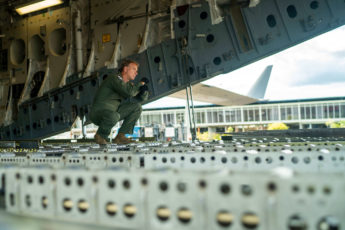
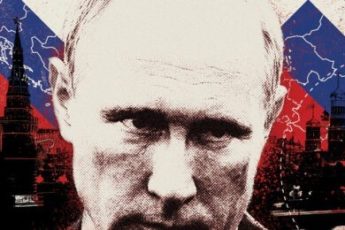
Fighting Russian Lies
Disinformation in Southeast Europe Since the end of the Cold War, the countries of Southeast Europe have pursued Euro-Atlantic integration with varying degrees of success. In recent years, however, that process has lost momentum as prospects for further NATO and European Union enlargement appear to have stalled. Even countries that [ … ]

Putin Has Painted Himself into a Corner
Two years after the 1962 Cuban Missile Crisis brought the world to the brink of a nuclear war, the Soviet Politburo ousted its leader, Nikita Khrushchev. Then-Politburo member Pyotr Shelest told me that many believed Khrushchev’s predisposition for unacceptable risk would again put the USSR in needless danger. This history [ … ]
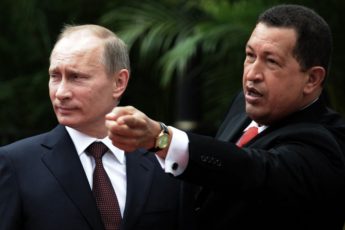
Examining Russian and Chinese Military Operations in Venezuela
With inflation at a record high, millions of its citizens fleeing the country, and a political opposition recognized by most Western democracies as the legitimate government of Venezuela, the regime of Nicolás Maduro seemed to be on the brink of collapse in 2019. But Maduro regime survived, thanks to a [ … ]
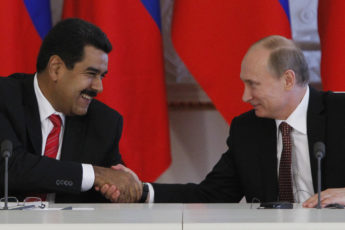
Russia’s Latest Return to Latin America
The indirect threat made by Russian Deputy Foreign Minister Sergei Ryabkov as the crisis in the Ukraine escalated in January 2022, that Russia could not rule out deploying military forces to Venezuela and Cuba, highlighted the strategic risks posed by Russia's position in the Western Hemisphere. On its face, the [ … ]

Venezuela: Understanding Political, External, and Criminal Actors in an Authoritarian State
The predictable triumph by Maduro loyalists in Venezuela’s rigged November 2021 elections was a symbolic nail in the coffin for the attempt by the de jure government of Juan Guaido to restore the more liberal type of democracy previously prevailing in the country. Venezuela now seems to ever more resemble [ … ]
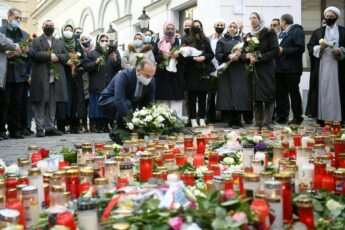
How to approach the fight against terrorism in the 21st century: crime or act of war?
The human being throughout his existence has been witness and protagonist of the struggle between good and evil. History illustrates from different perspectives how man has evolved and has become a being of knowledge, ideals and interests. When these are not fulfilled or satisfied, different mechanisms are established to obtain [ … ]
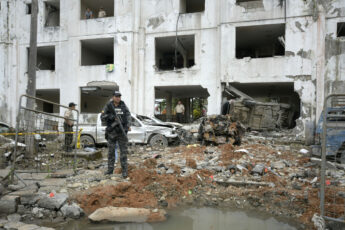
The fourth wave of insurgent terror
The human being throughout his existence has been witness and protagonist of the struggle between good and evil. History illustrates from different perspectives how man has evolved and has become a being of knowledge, ideals and interests. When these are not fulfilled or satisfied, different mechanisms are established to obtain [ … ]
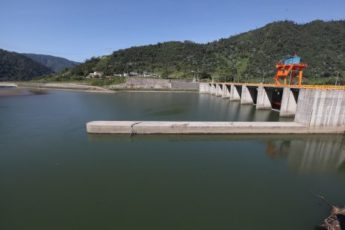
Can Latin America and the Caribbean Trust China as a Business Partner?
A lack of due diligence, corruption, and a disregard for indigenous rights and the environment have characterized many Chinese infrastructure projects in the region. On December 7, a few days after the third China-Community of Latin American and Caribbean States (CELAC) Forum, the Chinese Foreign Ministry released the China-CELAC Joint [ … ]
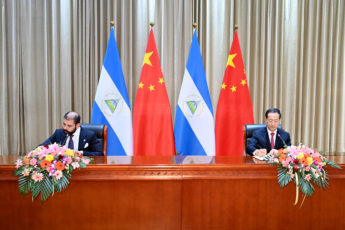
Nicaragua’s Flip to China: What Does It Mean for the Region?
Nicaragua’s diplomatic flip from Taiwan to the People’s Republic of China (PRC), announced on December 9, was almost inevitable, but it will accelerate a worrisome trend in parts of the Western Hemisphere closest to the U.S. to a China-funded form of authoritarian populism. That growing threat, in a part of [ … ]

Chinese Engagement in Guyana: An Update
The Guyanese government’s announcement that it is contracting with China Railway Group to build and fund the Amaila Falls hydroelectric project, and possibly take out as much as $1.5 billion in loans for Chinabuilt infrastructure, symbolizes the renewed takeoff of Chinese projects and PRC influence in Guyana. An earlier version [ … ]

9/11, Latin America, and the Impermanence of Strategic Concepts
On September 11, 2001, then US President George W. Bush had just completed a historic summit with his Mexican counterpart, Vicente Fox, the week prior. The interaction built on the “special friendship” between the two nations and the intertwined commercial, security, and other strategic interests binding the United States and [ … ]






